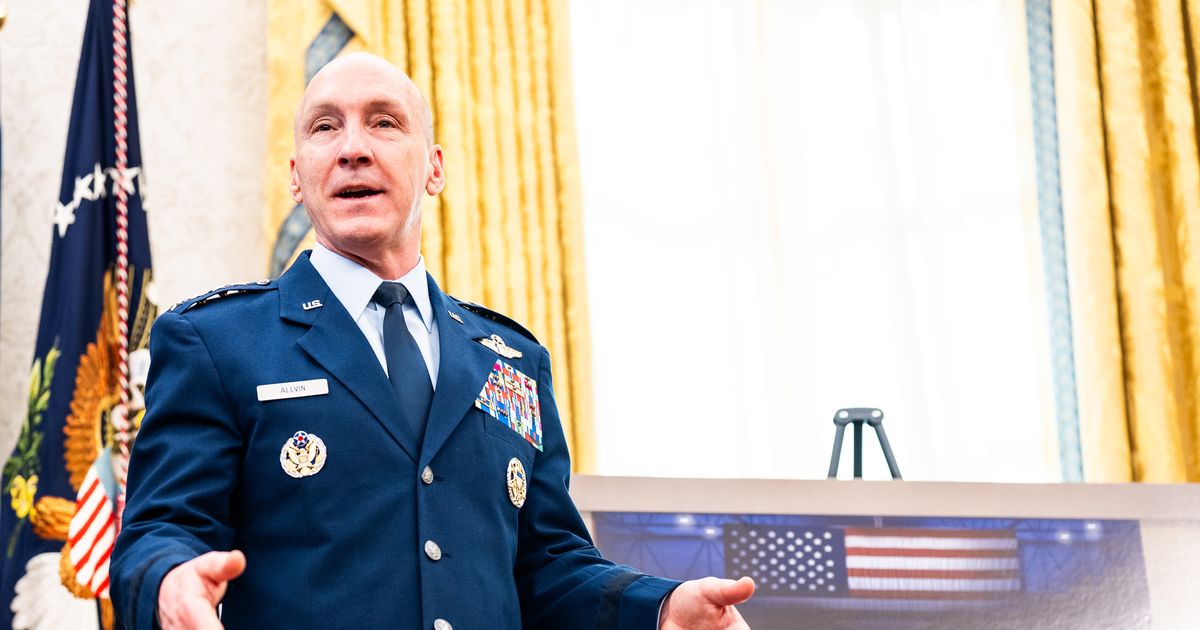The chief of staff of the Air Force, Gen. David Allvin, will retire two years into a four-year term, officials said Monday, marking the latest early ouster of a senior military officer under President Donald Trump.
The Air Force disclosed the move in a statement, saying that Allvin had announced that he plans to retire in early November. No successor was announced, and Allvin will continue to serve until one is confirmed by the Senate, the statement said.
Allvin was informed last week that he would be asked to retire and that the Pentagon under Defense Secretary Pete Hegseth wanted to go in another direction, said a person familiar with the matter, who, like some others, spoke on the condition of anonymity to discuss a sensitive issue. As a trade-off, the Pentagon would allow Allvin to announce the decision, this person said, adding, “It was certainly not his choice.”
Hegseth’s office did not respond to requests for comment. An Air Force spokesperson declined to comment.
Allvin’s impending departure follows the firings of several other senior military officers since Trump’s return to the White House this year, including the chairman of the Joint Chiefs of Staff, the chief of naval operations, the commandant of the Coast Guard, and the vice chief of staff of the Air Force. Generals and admirals serving in less prominent roles also have been purged, sending shock waves through the Pentagon and much of the U.S. military, where stability typically is seen as an asset.
One possibility to replace Allvin appears to be Gen. Thomas Bussiere, whom Trump nominated in July to become vice chief of staff of the Air Force. Bussiere has overseen Air Force Global Strike Command and its arsenal of nuclear weapons from headquarters at Barksdale Air Force Base in Louisiana since 2022, and is highly regarded by senior political appointees at the Pentagon, two people familiar with the matter said.
In his current role, Bussiere oversaw aspects of Operation Midnight Hammer, the U.S. strike on Iranian nuclear facilities in June.
Another person familiar with internal Air Force discussions said he was surprised it took as long as it did for the Trump administration to remove Allvin. Administration officials have been frustrated for some time with his oversight of preparations for a potential security crisis involving China, this person said.
Allvin said in his statement Monday that he is grateful to Trump, Hegseth and Air Force Secretary Troy Meink for the “opportunity to serve as the 23rd Air Force Chief of Staff.” He had previously served as the Air Force’s No. 2 officer for three years.
“More than anything, I’m proud to have been part of the team of Airmen who live out our core values of integrity, service and excellence every day as we prepare to defend this great nation,” Allvin said.
Meink, who was confirmed as the top political appointee in the Air Force in May, said in the same statement that the service is fortunate to have leaders such as Allvin.
“During his tenure, the Air Force has undertaken transformational initiatives that will enable Airmen to answer their nation’s call for decades to come,” Meink said. “General Allvin has been instrumental in my onboarding as the department’s 27th Secretary and I’m forever grateful for his partnership as well as his decades of exemplary service to our nation.”
